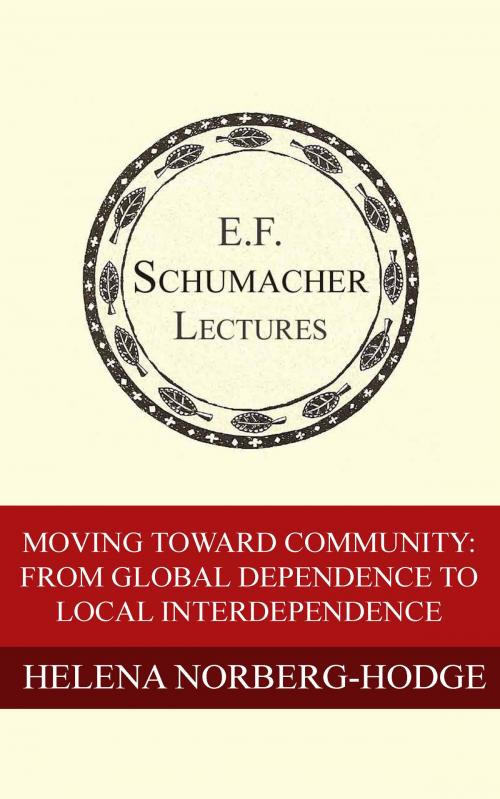Moving Toward Community: From Global Dependence to Local Interdependence
Business & Finance, Economics, International, Economic History| Author: | Helena Norberg-Hodge, Hildegarde Hannum | ISBN: | 1230000211575 |
| Publisher: | Schumacher Center for a New Economics | Publication: | October 26, 1996 |
| Imprint: | Language: | English |
| Author: | Helena Norberg-Hodge, Hildegarde Hannum |
| ISBN: | 1230000211575 |
| Publisher: | Schumacher Center for a New Economics |
| Publication: | October 26, 1996 |
| Imprint: | |
| Language: | English |
The collection of lectures and publications from the Schumacher Center for a New Economics represents some of the foremost voices on a new economics.
Founder and director of the International Society for Ecology and Culture, Helena Norberg-Hodge presents an eloquent argument in favor of worldwide action to oppose the global capitalist economy and its monoculture with revivified and strengthened local economies and communities. Drawing on her experience, particularly in Ladakh in northwestern India, she shows convincingly how much of a menace to tradition and stability the newly powerful global economy is, how destructive of culture as well as environment. But using her experience there in local organizing and cultural survival, she also demonstrates that it is possible to resist international pressures, raise awareness of the dangers of foreign influences, and create grass-roots initiatives for local empowerment and self-sufficiency.
The collection of lectures and publications from the Schumacher Center for a New Economics represents some of the foremost voices on a new economics.
Founder and director of the International Society for Ecology and Culture, Helena Norberg-Hodge presents an eloquent argument in favor of worldwide action to oppose the global capitalist economy and its monoculture with revivified and strengthened local economies and communities. Drawing on her experience, particularly in Ladakh in northwestern India, she shows convincingly how much of a menace to tradition and stability the newly powerful global economy is, how destructive of culture as well as environment. But using her experience there in local organizing and cultural survival, she also demonstrates that it is possible to resist international pressures, raise awareness of the dangers of foreign influences, and create grass-roots initiatives for local empowerment and self-sufficiency.















